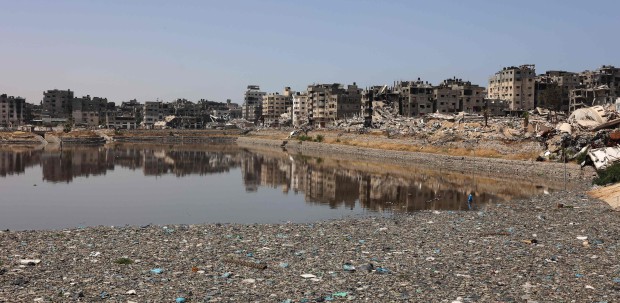WHEN Malaysia Airlines Flight MH17 was tragically “downed” on July 17 last year, killing all 298 on board, the first international reaction was one of shock. This initial reaction quickly gave way to anger when it became clear that someone, somewhere was responsible for the tragedy.
Some observers reacted to the news of MH17 by pressing Malaysia to join the International Criminal Court (ICC), the one body that could reputedly bring the perpetrators of this heinous crime to justice. Luckily, these opportunistic voices were drowned out by the voices of reason, outlining why the ICC was not the solution. True, by joining the ICC, we would be able to take grave criminal matters to the international body, but at what cost?
In the 13 years since the establishment of the ICC, member states to the Rome Statute have had to fork out more than US$1 billion (RM4 billion) for the upkeep of the court. Yet, the ICC has only had two convictions in that same time: those of Thomas Lubanga Dilyo and Germain Katanga. Who, you ask. Precisely the point. These were semi-famous players in an African nation already rife with strife. The ICC did not make that big an impact — Lubanga was already in prison, so it was just a matter of transferring him from his bare prison cell in Kinshasa to a posh prison accommodation with more facilities in The Hague.
The international community pays for the lavish lifestyle of these prisoners while they await trial in the distant future. This is money that could have gone towards the poor and the impoverished in a country, any country. If Malaysia joins the ICC, its annual contribution to the ICC would be substantial — between US$1.5 million and US$2 million. It is financial grounds why Malaysia should not join.
The ICC’s track record of investigating and convicting criminals is one that leaves much to be desired. If any government agency had that kind of output, it would have long been closed down. Yet, the ICC remains open for business because the Westphalian world is mainly solidarist rather than pluralist. Solidarists are those who feel for all of humankind, the environmental activists among us who want to see more intervention and less state sovereignty. Pluralists are those who, while empathising with their fellow man, also understand that not all of the world’s ills can be fixed by giving away our national treasures. Theoretically, this is why we should not join the ICC.
The ICC has jurisdiction over crimes that are heinous enough to give a grown man nightmares for the rest of his life. However, the nine “situations” under investigation by the ICC are all centred around African states. Crimes in non-African states have been kept out of the ICC by dint of political wrangling and diplomatic negotiation. For a court that is supposed to serve only the interests of justice, there are a whole lot of other interests being served as well. The Gaza flotilla incident, involving the Mari Mara and 12 Malaysians, for example, was not of “sufficient gravity” to merit the time and attention of the ICC. The ICC prosecutor proclaimed this almost unilaterally. Politically, therefore, this is why Malaysia should not join the ICC.
In our desire to see justice for the MH17 tragedy, we should not commit an even greater mistake by rushing headlong into joining the ICC.
If we want to bring the perpetrators to justice at the ICC, under which crime would we classify the downing of MH17? If we say it is a war crime, Ukraine would be beaming all along because this would “up” its internal conflict into a war of international proportions. We would be reducing MH17 into a pawn in this Crimean game of chess.
If we say it is a crime against humanity, then we have to show that the attack was systematic and widespread. MH17 was not — it was a one-off and unique tragedy, practically unparalleled anywhere else and, hopefully, not repeatable.
If it is genocide, then we would have to show that the perpetrators were targeting a particular nationality, ethnicity or religious group. There were 11 nationalities on board — it would be impossible for any one group to have realistically been targeted.
The crime of aggression, the fourth heinous crime under the Rome Statute, has yet to enter into force. So, no claims can be made to the ICC under the crime of aggression.
If Malaysia joins the ICC, it needs to do so on its own terms, not because it was steamrollered into it.
Ironically, July 17 is the Day of International Criminal Justice, celebrated every year because it marks the adoption of the Rome Statute in 1998. It is now also the day that marks the downing of MH17. Hopefully, when we next observe the Day of International Criminal Justice, those responsible for the downing of MH17 would have been brought to justice and the world would know the truth.
Hopefully, also, Malaysia would still have the good sense to stay out of the ICC family.
The writer is a Malaysian diplomat who has served in the United Nations
(New York) and is pursuing her PhD at the University of Sheffield




